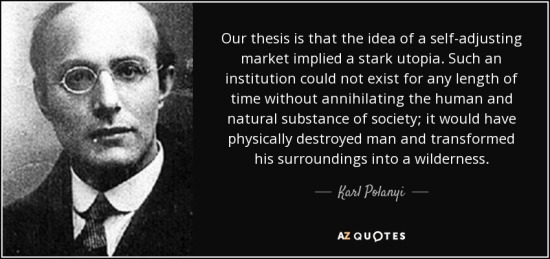Paul Krugman has repeatedly over the years argued that we should continue to use maistream economics hobby horses like IS-LM and AS-AD models. Here’s one example: So why do AS-AD? … We do want, somewhere along the way, to get across the notion of the self-correcting economy, the notion that in the long run, we may all be dead, but that we also have a tendency to return to full employment via price flexibility. Or to put it differently, you do want somehow to make clear the notion (which even fairly Keynesian guys like me share) that money is neutral in the long run. I seriously doubt that Keynes would have been impressed by having his theory being characterized by catchwords like “tendency to return to full employment” and “money is neutral in the long run.” One of
Topics:
Lars Pålsson Syll considers the following as important: Economics
This could be interesting, too:
Lars Pålsson Syll writes Schuldenbremse bye bye
Lars Pålsson Syll writes What’s wrong with economics — a primer
Lars Pålsson Syll writes Krigskeynesianismens återkomst
Lars Pålsson Syll writes Finding Eigenvalues and Eigenvectors (student stuff)
Paul Krugman has repeatedly over the years argued that we should continue to use maistream economics hobby horses like IS-LM and AS-AD models. Here’s one example:
So why do AS-AD? … We do want, somewhere along the way, to get across the notion of the self-correcting economy, the notion that in the long run, we may all be dead, but that we also have a tendency to return to full employment via price flexibility. Or to put it differently, you do want somehow to make clear the notion (which even fairly Keynesian guys like me share) that money is neutral in the long run.
I seriously doubt that Keynes would have been impressed by having his theory being characterized by catchwords like “tendency to return to full employment” and “money is neutral in the long run.”

One of Keynes’s central tenets is that there is no strong automatic tendency for economies to move towards full employment levels.
Money doesn’t matter in mainstream macroeconomic models. That’s true. According to the ‘classical dichotomy,’ real variables — output and employment — are independent of monetary variables, and so enables mainstream economics to depict the economy as basically a barter system.
But in the real world in which we happen to live, money certainly does matter. Money is not neutral and money matters in both the short run and the long run:
The theory which I desiderate would deal … with an economy in which money plays a part of its own and affects motives and decisions, and is, in short, one of the operative factors in the situation, so that the course of events cannot be predicted in either the long period or in the short, without a knowledge of the behaviour of money between the first state and the last. And it is this which we ought to mean when we speak of a monetary economy.
J. M. Keynes A monetary theory of production (1933)
